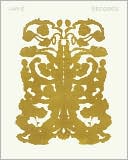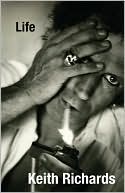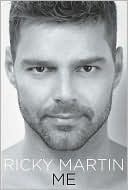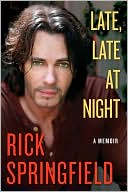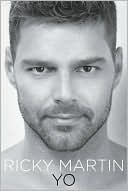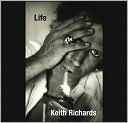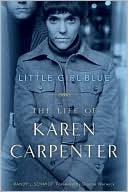When Giants Walked the Earth: A Biography of Led Zeppelin
Veteran rock journalist Mick Wall unflinchingly tells the story of the band that pushed the envelope on both creativity and excess, even by rock ‘n’ roll standards. Led Zeppelin was the last great band of the 1960s and the first great band of the 1970s—and When Giants Walked the Earth is the full, enthralling story of Zep from the inside, written by a former associate of both Jimmy Page and Robert Plant. Rich and revealing, it bores into not only the disaster, addiction and death that haunted...
Search in google:
Veteran rock journalist Mick Wall unflinchingly tells the story of the band that pushed the envelope on both creativity and excess, even by rock ‘n’ roll standards. Led Zeppelin was the last great band of the 1960s and the first great band of the 1970s—and When Giants Walked the Earth is the full, enthralling story of Zep from the inside, written by a former associate of both Jimmy Page and Robert Plant. Rich and revealing, it bores into not only the disaster, addiction and death that haunted the band but also into the real relationship between Page and Plant, including how it was influenced by Page’s interest in the occult. Comprehensive and yet intimately detailed, When Giants Walked the Earth literally gets into the principals’ heads to bring to life both an unforgettable band and an unrepeatable slice of rock history. Publishers Weekly Simon Vance transports the listener back in time to the dawn of heavy metal in rock journalist Wall’s biography of the legendary Led Zeppelin. Tracing the origins and history of the band and its members—from the early days with the Yardbirds to the birth and global conquest of the Mighty Zeppelin—Vance delivers a gritty performance that captures the spirit of both the band and the late 1960s. Although Wall’s portrait is often unpalatably sycophantic—particularly unfortunate are the melodramatic sections told in the second person—Vance’s range of voices and lively, spirited narration enliven the detailed history of the band and the private lives of Jimmy Page, Robert Plant, John Bonham, and John Paul Jones. A must for die-hard Zeppelin fans only, this audiobook, with its 18 hours of smitten zealotry, may prove too much for the casual listener. A St. Martin’s hardcover (Reviews, Sept. 14). (Nov.)
PART ONE Ascension!\ ‘To worship me take wine and strange drugs whereof I will tell my prophet, & be drunk thereof!\ They shall not harm thee at all!’\ —Aleister Crowley, The Book of the Law This page intentionally left blank\ 1\ The Dawn of Now You are Jimmy Page. It is the summer of 1968 and you are one of the best-known guitarists in London – and one of its least famous. Even the past two years in the Yardbirds haven’t brought you the recognition you know you deserve. People talk about the Yardbirds as though Jeff Beck is still the guitarist, not you, despite everything you’ve done for them; giving up the easy-money session gigs that bought you your house by the river; gifting them one last ride on the merry-go-round with ahead-of-the-game hits like ‘Happening Ten Years Time Ago’, even as Mickie Most sucked the life out of them making them do codswallop like ‘Ha Ha Said The Clown’; sticking with them as their profile has slowly faded from view, along with their own self-worth. They still mean something in America, just about, but back home they are dead meat. And what’s the point in traipsing around America, them and the other half-dozen acts on the same poxy package bill, earning less in a week than you used to get for a day’s worth of sessions, when no-one even knows your name, knows how important you are now to the whole set-up?\ Jeff Beck? Jeff is an old mate, but who had recommended him for the job in the first place? Done him a favour when he was on his uppers? You – Jimmy Page. The one who turned down the Yardbirds after Clapton had walked out, not because you were afraid, like Eric, that their craving for pop stardom would ruin your image as a ‘blues purist’ – you were never one of those, your love of folk, rock’n’roll, jazz, classical, Indian, Irish, anything and everything, meant you always felt sorry for those poor unfortunates that could only ever like one form of music – but because you’d secretly shuddered at the prospect of trawling the country’s pubs and clubs, bouncing around in the back of a shitty bloody transit van like you’d done before with Neil Christian and the Crusaders, ending up so ill you couldn’t get out of bed for three days. Not even making any bread out of it. Stuff that for a game of soldiers.\ And so you’d recommended your old mate Jeff, who was just sat around doing nothing. Then stood back and watched as the Yardbirds with Beck had taken off like a rocket . . . ‘For Your Love’, ‘Heart Full of Soul’, ‘Shapes of Things’, hit after hit . . . Next thing you were in the Yardbirds too. It was never supposed to last, and you never made any promises, but you had to admit it was all right. Even when you were just supposed to be helping them out till they found a proper replacement for Samwell-Smith, twanging the bass as a bit of a laugh, the buzz was good. When they suggested moving Chris over onto bass and having you and Jeff both on guitar, you couldn’t believe it! You did wonder how long Jeff would be able to hack it, but while it lasted it was actually really good. Not just the playing – you and Jeff had always played well together – but the vibe, the scene. It felt like an omen when you found yourself booked with them to appear in the Antonioni film, Blow Up. All you had to do was make like you were playing a club, steaming it, a great laugh. Though Jeff moaned when the old director asked him to smash his guitar. Six times he had to go through it, pretending to be Pete Townshend, before the old Italian was happy. God, did he moan! You just couldn’t stop smiling though.\ Then he left. Jeff Beck, the great guitar hero who had no discipline whatsoever, brilliant one night, less so the next; the so-called cool cat who couldn’t write an original tune to save his life and had sold out to Mickie Most and his off-the-peg hits. Jeff is a mate and you don’t like to bad-mouth him, but even Jeff knows ‘Hi Ho Silver Lining’ was a load of old rubbish; everyone knows it was a load of old rubbish. Yet there it was as soon as he left the Yardbirds, courtesy of Mickie, in the charts and in the discotheques; on the radio and being danced to by all the leggy birds in their miniskirts on Top of the Pops.\ Well, good for Jeff Beck, but what about you, Jimmy Page? What are you gonna do now Jeff has his own thing going and the Yardbirds have finally gone kaput? You don’t know. Or rather, you do, but only on an instinctual level. You don’t have the proof yet but the answer, you’re fairly sure, is to take the Yardbirds and build on it, take their rinky-dink rock’n’roll and so-called experimentation – their gimmicks – and turn them into something much more deliberate; something that will make you gasp, not just sigh, something that will actually compete with Hendrix and Cream and the Stones and the bloody Beatles. Really show the world who’s who and what’s what.\ But you are also wary of letting go of the bit of fame you’ve finally found, however meagre. Most people may think Jeff Beck is still the guitar player in the Yardbirds but at least they’ve heard of the Yardbirds. Who’s heard of Jimmy Page, outside of the know-all producers and record company bigwigs, the studio broom-pushers and pretty receptionists? Outside of all the guitarists you’ve replaced on sessions over the years – the guy in Them, the guy in Herman’s Hermits, the countless others whose faces you no longer remember and who would never acknowledge what you’d done for them anyway, never thank you . . .\ At least you know where you stand. Self-confident, well off, used to being on your own, you have always been someone who knew exactly where you stood, even as a kid playing on sessions for old timers like Val Doonican. You had always walked tall, always known your own worth even as others discounted it, sending you on your way to the next session – sometimes as many as three a day, six days a week, never knowing what you were going to be asked to play next, picking up good money and taking none of the risks – and none of the glory, either, when it worked.\ Now it is your turn to shine. You are twenty-four, a hardened session pro who knows all about working in the studio, taking your cue from famous knob-twiddlers like Shel Talmy and Mickie Most, playing along with other session pros like Big Jim Sullivan and Bobby Graham, sharing a fag during tea breaks, taking it all in, crossing paths again and again over the years like lucky black cats. Now you want to do something for yourself. You’ve always wanted it. Now it’s time. Something big, like Eric with Cream – only better. Like Jeff with Rod Stewart and Ronnie Wood – only better. Like George Harrison and Brian Jones with their sitars, even though you had one first – only much, much better, you wait and bloody see.\ First, though, you need to put the pieces together, find the corners of the jigsaw. The years working behind the scenes – in the dark, a hired gun, doing as you were told, looking and listening and taking it all in, sharing a fag and laughing up your sleeve – have taught you about more than just the playing. You now know where to place the mikes. ‘Distance makes depth,’ as the old lags liked to say. You now know how to operate the desk, what makes bad groups good and good groups better. You now know it’s about more than just being able to play, otherwise you’d have been a star long ago. You have also learnt something about the business. You know the value of a name and of having the right record company behind you, the right guys in suits. And for that you know you will need help. You’ve got a head start though. The Yardbirds still have a name – just – and you aren’t about to let go of it. Not yet. You have to be sure first; have to be precise; your timing, as a pro, will have to be perfect, you know that.\ The problem is time is running out. Only twenty-four but already the music is moving on without you. You wouldn’t have said it out loud but you know it’s true. Cream is already coming to its end and you feel like you haven’t even started. Hendrix is now everybody’s guitar god but you haven’t shown them what you can do yet, given the opportunity, away from the sessions and the smoky studios and the bands crumbling from within, lost somewhere out there on the American road, just counting the days till something better comes along. Time is running out and though you’d never say it out loud you are starting to worry you have missed the bloody boat; that if you’re not careful you will have to go back to doing sessions. ‘Becoming one of those sorts of people I hate,’ as you tell your friends.\ The last Yardbirds tour comes to an end in Montgomery, Alabama, the gig at the Speedway Fairgrounds coming the day after Bobby Kennedy is shot in Los Angeles. You all watch it on TV back at the hotel and you all go ‘wow’ and shake your heads and light more cigarettes. But it means nothing to you compared to the thought of the group breaking up. By the middle of June you are at home again in your groovy riverside abode in Pangbourne – a converted Victorian boathouse thirty miles up the Thames from London with one of those basement boat moorings, not that you have a boat – wondering what on earth you are going to do now.\ Fortunately, you have an ace up your sleeve; someone who knows what you can do, who you are, what you could become, and who shares your determination to make something of it, to finally let the cat out of the bag: Peter Grant. ‘G’. The hulking, oversensitive giant who co-manages the Yardbirds with Mickie and who has kept you safe throughout your travels, especially on that bloody awful last American tour, when Keith Relf was going off the rails, getting drunk on stage every night and only Chris Dreja still seemed interested in keeping the whole thing together. G, who’d sat in the car with you, stuck in traffic in Shaftesbury Avenue, just days after getting back from America, both of you knowing it’s over, talking about what you are going to do now. G, who sits and listens as you, in your quiet, well-mannered voice finally says what it is you’ve secretly been thinking all this time, finally says out it loud: that you think you can take the group and do better, add new members, write new music, do better.\ The stumbling block, you both know, will be Mickie, who is only really interested in singles. Art for art’s sake, hit singles for fuck’s sake. That’s Mickie’s motto. But singles aren’t where it’s at anymore. The Yardbirds should be more of an albums’ band now, it’s obvious. You haven’t said so to Mickie because you know he would only scoff, just as he had when Jeff complained he wanted to make albums too, but you say it now to Peter, who sits and listens, looking straight ahead through the windscreen at the traffic. The key, you say, feeling courageous, would be letting you have a free hand to do it the way you know it should be done. The way you hear it in your head sometimes when no-one else is listening. Not just leading the group but writing the music and lyrics, producing the records yourself, doing everything yourself except managing. That’s where Peter would come in – if he’s interested. G, who has worked for years in the shadows of other, more powerful music businessmen, waiting his turn in the dark, just like you. G, who sits there at the steering wheel, staring at the traffic straight ahead, and simply nods his head. ‘All right then,’ he says. ‘Let’s do it.’\ There is one last Yardbirds show, a low-key contract-filler in the Student Union hall at Luton College on 7 July – almost two years to the day since the last big single in Britain, ‘Over Under Sideways Down’ – and then it really is all over. Only Chris has said he’s willing to stick with it and give it another go with you but even he is now having second thoughts. Oh, he hasn’t said anything yet to you or Peter, but you both know. So what? You’re gonna need 100 per cent commitment if the new music you want to make is to sound the way you want it to. Chris is no great shakes on the bass anyway. Better he go now then, even if it does leave you on your own. Well, you’re used to that. As an only child, you’ve never been afraid of being on your own. So when, barely a month after that last show in Luton, Chris finally owns up to the fact he isn’t into it anymore, would rather go off and try for a new career as a photographer – ‘He thinks he’s the new fucking David Bailey,’ laughs G – you are secretly relieved.\ Now it’s down to just the two of you, Jimmy and G. And of course, the name, for what it’s still worth: the Yardbirds. Or maybe the New Yard-birds – G’s suggestion. That way, at least, it won’t be like starting again from scratch, he says. Not entirely, anyway. And you can still get paying gigs. Keep the wolf from the door until you can come up with something better. That’s the plan anyway, this long, rainy summer of 1968 . . .‘I knew exactly what I wanted to do,’ says Jimmy Page nearly forty years later, sitting in his basement kitchen at the Tower House, the nineteenth-century Gothic pile in London’s Holland Park, designed by the architect and Freemason William Burges. It’s a sunny late summer’s afternoon in 2005 and we are having a cup of tea, looking back at the early days of the band for yet another magazine profile. Over the past twenty years this has become almost an annual ritual for us, the interest in Zeppelin having magnified over the years to the point where they are now more popular than they ever were in their lifetime. Of course, the days of Jack Daniel’s and cocaine, of groupies and smack – the days of dragon suits and black swans – are long gone. Jimmy Page doesn’t drink, doesn’t take drugs; doesn’t even smoke cigarettes anymore. But that doesn’t mean he’s forgotten what it was like, what it was all about. Or that he is in the slightest bit repentant. Indeed, his only real regret, he says, is that it had to end. ‘It was hedonistic times, you know?’ He shrugs. ‘But the thing is the playing was always there. On maybe just a very rare occasion did it suffer – a rare occasion relative to the volume of tours. But we wanted to be on that edge, it fed into the music.’\ Of course it did. That was what it was all about for a rock monster like Led Zeppelin, feeding on planets and shitting stars. Drugs were their fuel, sex a form of self-expression, music merely the map to the treasure. Think of the Stones, crammed into Keith’s sweaty windowless basement at Villa Nellcote in France in 1972, waiting for him to come to after another three-day mindbender; waiting for him to get enough coke and smack up his nose and in his arm before he is ready to lay down the bones of what will become the greatest Stones album ever made, whatever Mick and his posh new foreign bird thinks. Think of John and George, acid buddies suddenly, united for once against strait-laced Paul and clueless Ringo; high priests labouring devoutly to take the Beatles beyond the yeah-yeah-yeah of their lovable mop-top past and into the infinitely more knowing, vastly more expanded consciousness of Revolver and eventually Sgt. Pepper, the album that transformed the world from black and white into colour. Think of Dylan smoking his weed, swallowing his pills, wearing sunglasses at midnight and vibrating in his chair by the window as he sits up all night at the Chelsea Hotel in New York writing ‘Sad Eyed Lady Of The Lowlands’ for . . . her. Or Hendrix tripping on godhead in some beer-sticky London dive full of fag smoke and jealous white males, as The Who and Cream and everyone else who tried to follow him bathed in his comet trail and foolishly tried to hold onto the sparks. Of course the drugs fed into the music of Led Zeppelin. That’s what the drugs were for. That’s what Led Zeppelin was for. That’s what it was all about, right Jimmy? Back then in the Seventies, that bridge-burning, hyper-individualistic era that began in 1968 and burst into a cultural forest-fire that would keep on spreading all the way up to around 1982; after birth control but before AIDS, when suddenly everything seemed possible and nothing was verboten. The flipside of the idealistic, consensual Sixties, the Seventies was the era when doing your own thing and letting it all hang out ceased to be mere slogans and became a birthright. When doing what thou wilt really had become the whole of the law.\ How is someone like Jimmy Page supposed to put all that into words now, though, without everyone pulling a face, or worse still laughing it off? Almost impossible to do back then, it is frankly out of the question now. Even for Robert Plant, who always has an answer for everything, he thinks. Clearly, though, those early days of Zeppelin are just as vivid to Jimmy Page now, in his still smouldering old age, as they were forty years ago, in his death-defying, universe-baiting prime. In his mid-sixties now, you could forgive him for being vague on the details. But he’s not; he’s very precise, in fact. As he has been about everything important he’s done in his career. ‘I knew what I’d been working on in the framework of the Yardbirds,’ he says, drinking his tea, ‘and I knew that I wanted to take that further on – and you can hear all of that on the first [Zeppelin] album.’\ Yes, you can. Not in the material, per se – there was little that was original about that – but in the idea; the methodology; the determination to take over the entire conversation. Recently, though, I’d read that he’d originally had something lighter, more acoustic in mind, then had a change of heart after he saw drummer John Bonham play. An idea encouraged perhaps by his solo appearance in Zeppelin’s earliest days on the Julie Felix TV show, picking elegantly at ‘White Summer’, the acoustic guitar interlude based on legendary folk enigma Davy Graham’s instrumental raga on the Irish melody ‘She Moved Through The Fair’ which was Page’s showcase even back in Yardbirds days and that had one enthralled reviewer comparing him to flamenco guitarist Manitas de Plata.\ ‘That’s bullshit,’ he told me, contemptuous of the notion that Zeppelin might ever have been anything other than what they were. ‘I had a whole sort of repertoire in my mind of songs that I wanted to put into this new format, like “Babe I’m Gonna Leave You”, for example. But it wasn’t just the sensitivity of doing an acoustic number, cos it was all gonna grow.’ Zeppelin would not be anything so simple as all-acoustic or all-electric. Zeppelin would not be nailed down. ‘I was seeing all this sort of dynamic. Because my tastes were all-encompassing, musically, it wasn’t down to one particular thing. It wasn’t just the blues, it wasn’t just rock’n’roll. It wasn’t just folk music or classical music. It went all the way through the whole thing.’ Later, when I checked, I discovered he’d said much the same thing to writer Mick Houghton as far back as 1976. ‘I knew exactly the style I was after and the sort of musicians I wanted to play with,’ he’d declared then. ‘I guess it proves that the group was really meant to be, the way it all came together.’ Then again in 1990, when he told Mat Snow in Q: ‘We knew what we were doing: treading down paths that had not been trodden before.’\ So Jimmy Page had the whole thing worked out right from the start, did he? Musically, perhaps he did. Or, as he says now, what he wanted ‘the framework’ to be. However, the manner in which he really put the group together was much more haphazard; much more risky. Luck played a huge part. In fact, at first it appeared Lady Luck was working against him when he realised he couldn’t get any of the people he really wanted in the band interested. Or if they were interested, that something else stood in the way. For example, hindsight tells us that vocalist/guitarist Terry Reid, one of the first people Page approached, was a fool to turn down the chance to join Led Zeppelin. But they weren’t called Led Zeppelin then – they were still just the New Yardbirds, a new name that made the band sound very old. Reid was young, a gunslinger in his own right with, ironically, a solo deal with Mickie Most on the table. What did he want to join the New Yardbirds for?\ Still only nineteen and hotly tipped by the music press as the ‘Pop Star Most Likely To’, Reid had been a star-in-the-making since he was sixteen, when Peter Jay of the Jaywalkers made him his new frontman. Then came Hendrix and Cream and just like everyone else, Terry had wanted to get in on the act too. By February 1968, his pal Graham Nash – who had just left the Hollies to do his own thing in America with two groovy new cats he’d met named David Crosby and Stephen Stills – had talked Mickie Most into signing him. When Jimmy Page came along with his offer to join the New Yardbirds, Reid was already hard at work on the songs that would end up on his Superlungs album – the naff nickname dreamed up for him by Most. How could he turn his back on all that just to try and help refloat a leaky boat like the Yardbirds?
Prologue - Heaven 1Pt. 1 Ascension! 31 The Dawn of Now 52 Daze of My Youth 293 Light and Shade 544 Going To California 775 High in the Sky 1026 Cannons! 1267 Cracking the Whip 1538 A Bustle in Your Hedgerow 178Pt. 2 The Curse of King Midas 2059 So Mote It Be 20710 All That Glitters 23511 We Are Your Overlords 26812 The Golden Gods 30013 The Devil in His Hole 33014 Caesar's Chariot 35915 The Outhouse 38616 To Be A Rock ... 418Epilogue - Gone, Gone, Gone ... 451Notes and Sources 469Index 477
\ From the Publisher"Led Zeppelin still thunders over the kingdom of rock, decades after the quartet split up. Veteran U.K. music scribe Wall takes on the mammoth task of humanizing the band through a detailed but colorful biography that benefits from his unusual amount of access to Robert Plant and Jimmy Page. Wall does well to shine light on the myths and the music magic of Led Zep—rendering what could have been cartoonish real and sincere."—Time Out Chicago\ \ \ \ \ Publishers WeeklySimon Vance transports the listener back in time to the dawn of heavy metal in rock journalist Wall’s biography of the legendary Led Zeppelin. Tracing the origins and history of the band and its members—from the early days with the Yardbirds to the birth and global conquest of the Mighty Zeppelin—Vance delivers a gritty performance that captures the spirit of both the band and the late 1960s. Although Wall’s portrait is often unpalatably sycophantic—particularly unfortunate are the melodramatic sections told in the second person—Vance’s range of voices and lively, spirited narration enliven the detailed history of the band and the private lives of Jimmy Page, Robert Plant, John Bonham, and John Paul Jones. A must for die-hard Zeppelin fans only, this audiobook, with its 18 hours of smitten zealotry, may prove too much for the casual listener. A St. Martin’s hardcover (Reviews, Sept. 14). (Nov.)\ \ \ Library JournalIn the days before the Internet, this would have been hailed as the definitive tome on one of rock's most hallowed bands. And it still might be. But with virtually every Zeppelin secret or anecdote posted on some web page, this book is a bit of an anticlimax for hard-core Zepheads craving new info. But this biography, built from research and personal interviews with band members, can be a bible on the band for general music fans who don't fill their closets with Zeppelin concert bootlegs. British music journalist Wall (W.A.R.: The Unauthorized Biography of William Axl Rose) deserves credit for refraining from retreading groupie stories or the drama of premature deaths; instead, he devotes ample space to the idea of Zeppelin's musical plagiarism and explores, in much detail, guitarist Jimmy Page's fascination with the occult. VERDICT Save for some awkward second-person passages "flashing back" to band members' pasts, Wall's thorough book can be as engrossing and epic as a Zeppelin tune. Recommended for rock music fans and anyone with curiosities about pop culture and the occult.—Robert Morast, Fargo, ND\ \ \ \ \ Kirkus ReviewsThe whirlwind story of the rock legends. Led Zeppelin remains more popular now than ever, writes British journalist Wall (W.A.R.: The Unauthorized Biography of William Axl Rose, 2008, etc.). Based on interviews and new research, he offers a vivid, anecdote-crammed account of the spectacular rise and dark decline of the four young rock musicians-Jimmy Page, Robert Plant, John Bonham and John Paul Jones-who created one of the all-time best bands and pushed the outer limits of sex, drugs and rock 'n' roll. Much of the story is familiar, but Wall ably captures the mix of creativity and depravity. Formed by guitarist Page, Led Zeppelin clicked immediately. Fans adored them, while critics called their hard rock/blues hybrid overhyped and too loud. The band just played louder and longer-one Boston concert lasted nearly five hours-and assumed an outsider persona (they refused to appear at Woodstock), playing trippy set pieces for hippie kids and embodying the paranoid atmosphere in America in the wake of the Charles Manson murders. As years passed, their on- and offstage antics grew, as did audiences and album sales, and Led Zeppelin moved into a "full-on, town-owning, party-head mode," engaging in raucous behavior and debauchery fueled by rampant drug use. Amid graphic descriptions of the band's notorious groupie moments, Wall offers thoughtful discussions of their tours, albums, and talents and peculiarities. Page, deeply interested in the occult, bought English hedonist Aleister Crowley's infamous Scotland home; singer Plant long hankered to go solo and found success with bluegrass singer Alison Krauss in 2007; bassist Jones remained ever-sensible; and drummer Bonham, drug-addled and thuggish,died in 1980, which led to the band's breakup. In their last years, writes Wall, the band played under a "cold, black cloud," with U.S. fans sometimes rampaging. Now in their 60s, surviving members appear to have few regrets; they reunite occasionally, and their albums bring in millions annually. Some fresh reporting and colorful description amid a well-known tale-fans will love it.\ \

